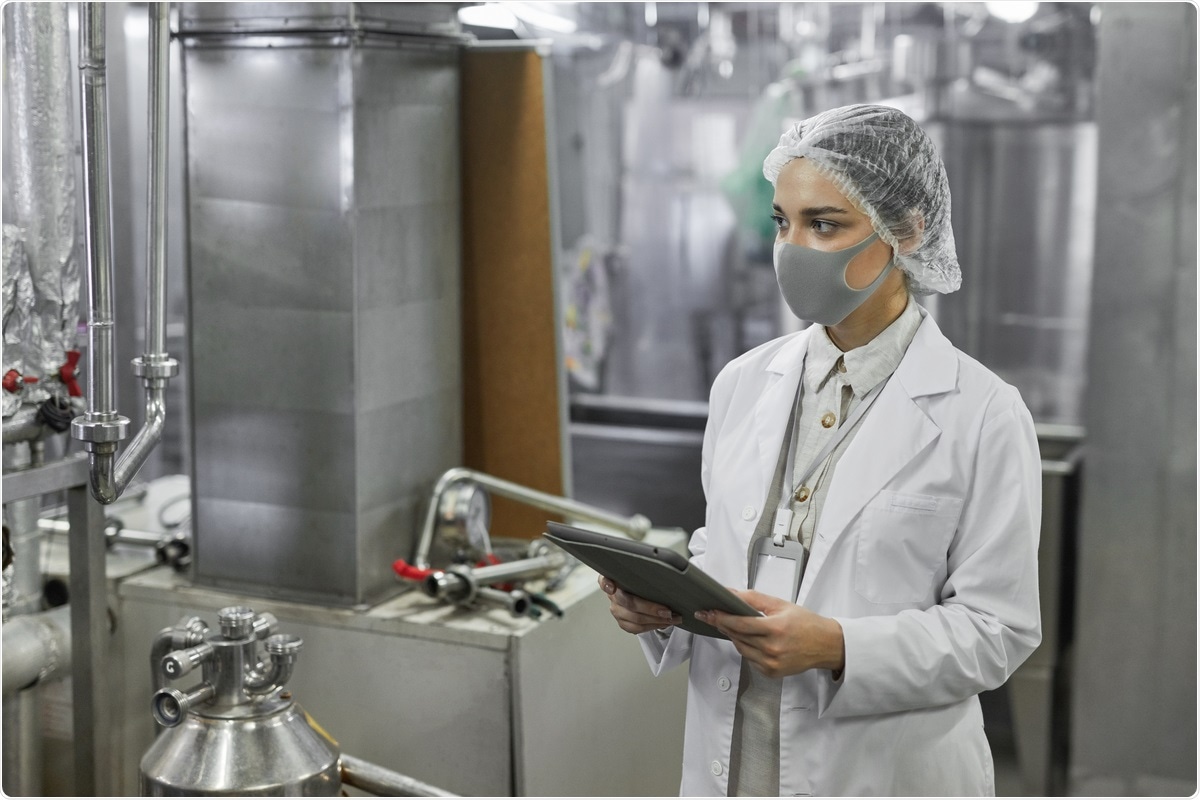With the onset of the coronavirus disease 2019 (COVID-19) pandemic, many worried they could be exposed to its causative pathogen – severe acute respiratory syndrome coronavirus 2 (SARS-CoV-2) – through their food. While more research has suggested transmission through food contamination is unlikely, it has highlighted a need to investigate hygiene and safety practices in food supply chains.
Research led by Igor Tomasevic of the University of Belgrade in Siberia found that food safety was not compromised with restrictive hygiene procedures implemented during the pandemic.
This study provides an important insight into the response of food safety systems during the first months of the pandemic, elevating the perspective of preventing Covid-19 within conventional food safety management systems,” wrote the research team.
The survey results were published in the journal Food Control.

Conducting the survey
The researchers surveyed 825 food companies spanning 16 different countries from May 2020 to August 2020. Inclusion into the study focused on being a part of the food supply chain, whether that was primary production, processing, storage/distribution, or retail/wholesale covering companies from both animal origin and plant origin food sectors. Questions were presented through mail or an online platform and translated into the company’s local language if English was not the native language.
The questionnaire had five sections: information on the company, food safety, priorities in preventing food contamination or other risks, food safety systems within the food supply chain that most affected by the COVID-19 pandemic, and documentation of emergency plans in place for any potential disaster on food safety.
Company demographics
There was a range of 32 to 63 companies per country. About 44.6% of survey respondents were classified as small companies with less than 50 employees; 28.7% were medium-sized companies; and 26.7% were large companies employing over 250 people. Almost half of the survey respondents worked with meat production, 31.5% exclusively with plant food, and 18.3% were food service companies.
About 49% of survey respondents came from food safety/HACCP team leaders, 19.3% from production managers, and 31.8% from top management staff.
Survey results
The team used the Likert scale, with 1 rated as strongly disagree with the statement and 5 being strongly agreeable. All companies strongly agreed they executed stricter hygiene protocols and training their staff on food safety during the COVID-19 pandemic. Companies also reported buying more personal protective equipment for their employees.
An important survey result was that food companies strongly agreed the food was not compromised at any moment during the pandemic.
Priorities in pandemic preparedness
When considering different preparedness features, the most influential was staff awareness followed by food hygiene products — this coincides with the World Health Organization’s recommendation of top priorities in food supply chains.
Routine temperature checks of workers appeared to be of little importance in food supply chains, with health protocols from the World Health Organization and/or government being the least influential. The researchers note two main reasons why government officials were of lesser importance:
On one side, all protocols directed to food companies had limited GHP requirements that could be considered new (such as physical distancing or temperature checking of workers), opposed to the importance of keeping working environment clean. On the other side, ‘infodemia’ of rumors and misleading information slightly undermined the authority of WHO and/or national authorities.”
Increasing use of masks and gloves was not as much of a priority, although the researchers note it’s probably because the equipment was already in use in the food sector.
When asked about emergency preparedness, less than half of companies had plans in place for a pandemic. The top three emergency plans in companies were: water contamination (66.5%), contamination of ingredients or packaging (56.2%), and pandemic and health issues (44.4%).
Study limitations
The results are based on a survey and not a controlled experiment, leaving the possibility of bias in a companies’ perception and beliefs in how they conducted food safety protocols in a pandemic. There were also no on-site assessments to confirm that food safety and emergency protocols were in place and met.
The researchers suggest future research should focus on the COVID-19 pandemic’s effects on other food areas such as food fraud, food defense, and food security.
- Djeckic I, et al. Covid-19 pandemic effects on food safety – Multi-country survey study. Food Control, 2021. doi: https://doi.org/10.1016/j.foodcont.2020.107800, https://www.sciencedirect.com/science/article/pii/S0956713520307167
Posted in: Miscellaneous News | Disease/Infection News | Healthcare News
Tags: Contamination, Coronavirus, Coronavirus Disease COVID-19, food fraud, Food Safety, Hygiene, Language, Meat, Pandemic, Pathogen, Personal Protective Equipment, Research, Respiratory, SARS, SARS-CoV-2, Severe Acute Respiratory, Severe Acute Respiratory Syndrome, Syndrome, Water Contamination

Written by
Jocelyn Solis-Moreira
Jocelyn Solis-Moreira graduated with a Bachelor's in Integrative Neuroscience, where she then pursued graduate research looking at the long-term effects of adolescent binge drinking on the brain's neurochemistry in adulthood.
Source: Read Full Article
